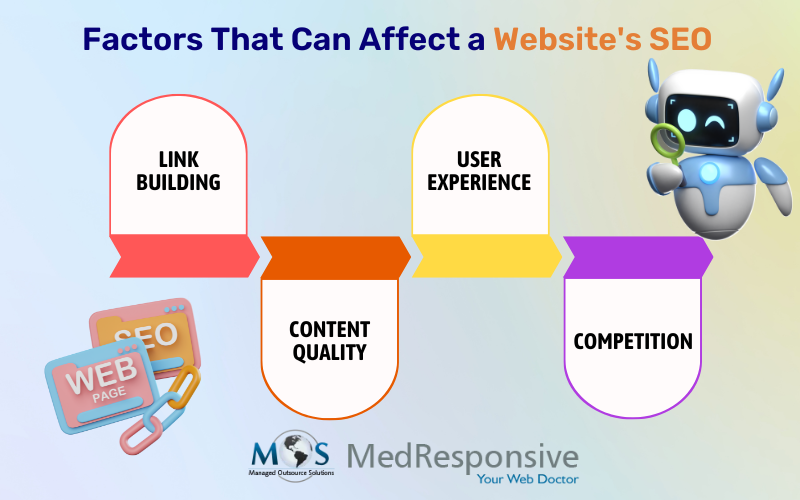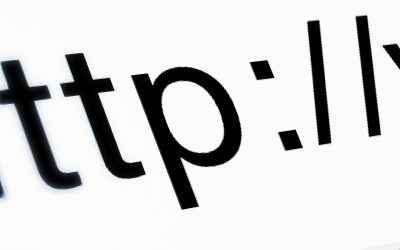There are many tools and analytics solutions available to assist you in raising your company’s search engine results page (SERP) rankings. It’s easy to assume you’ve covered everything there is to know about the requirements for an optimized website, only to realize afterwards that you overlooked something important. In other cases, you might not even be aware that a particular element on your page is important. Page Authority becomes relevant at this point. One of the criteria that digital marketing service providers prioritize, along with site layout and content landing optimization, is page authority.
What Is Page Authority Score and Why is it Important for SEO?
Created by the SaaS company Moz, the term “Page Authority” refers to a score used to predict how well a web page will rank in the search results on the search engines. Search engines assign Page Authority (PA) scores to webpages, indicating their potential to rank in search results. It reflects the trust and importance search engines attribute to a page, calculated from factors like the number and quality of links directed to it. You can compare PA scores on specific pages with each other, both on your own site and on other sites.
Google values websites with higher PAs and DAs as indicators of their strength and credibility. As a result, your chances of appearing on the first page of search results are increased. Search engines determine PA based on complex algorithms. Key factors involved include the quality of inbound links and the relevance of the page’s content. Since it fairly represents a website’s capacity to rank in the SERPs, PA is important for SEO.
Here are some ways in which all can impact a website’s SEO:
- Link Building: The quantity and caliber of external links pointing to a page are important determinants of its Page Authority. A8 page with a high PA score is probably going to get more links from other websites, which will raise its position in search engine results pages. Conversely, a page with a low Page Authority score could find it difficult to draw in outside links, which could hurt its search engine ranking.
- Content Quality: The quality of the content on the page also has an impact on Page Authority. Well-written, educational, and interesting pages have a higher PA score and are more likely to draw in outside links. Conversely, pages with poor AAa lo0 content might find it difficult to get links and will receive a lower PA rating.
- User Experience: A user is more likely to have a positive experience on a page with a high PA score than one with a low score. A page with a higher PA score has a higher probability of ranking highly in search results, increasing the likelihood that users will find it when looking for pertinent keywords. Users are less likely to find a page with a low Page Authority score if it is buried in search results.
- Competition: Page Authority can also be impacted by the competition for a specific keyword or phrase. For instance, a page with a high PA score has a higher chance of ranking highly in search results when there are numerous pages vying for the same keyword. On the other hand, a page with a lower PA score might still rank well if there is less competition for a given keyword.
How Is Page Authority Score Calculated?
The PA calculates the total value of a page’s backlink profile. It is a comparative study of your pages and competitors, mainly focusing on their link profiles, rather than a ranking component. As PA varies, what works on one website might not work for another.
Moz’s algorithm determines Page Authority (PA), which is computed on a logarithmic scale from 1 to 100. While the specifics of the algorithm are still unknown, a number of factors are considered in order to determine the Page Authority of a webpage. These probably include things like the quantity of domains that connect, the caliber and authority of those links, the volume of traffic that goes to those domains, and other proprietary trust scores.
Higher PA scores indicate a higher probability of ranking well in search results. A high Page Authority is indicated by a score on the PA scale that falls between 60 and 80. As the scoring system is logarithmic, it becomes more challenging to achieve higher scores as you move up the scale. For example, it is much easier to increase your score from 20 to 30 than from 70 to 80. Moz continuously updates the PA algorithm, resulting in occasional changes to the page score.
Factors That Affect Page Authority Score
Linking Pages: The PA score also takes into account the caliber of the outbound links that point to your website. Adding links to pages with high Page Authority will raise the target URL’s Page Authority (PA) score.
- “Do follow” Links: Through the exchange of link equity, Dofollow links move the most PageRank authority from the original website to the target site. Your page will have a higher Page Authority score the more Dofollow links it receives.
- 301s and 302s: A 302 redirect denotes a temporary relocation of a page, while a 301 redirect indicates a permanent relocation. The frequency and caliber of these redirects also affect Page Authority metrics.
- Old vs. New Links: The proportion of recent links that enter a page affects a website’s Page Authority score. A website that continuously receives new backlinks indicates that it is a higher-quality page that search engines find relevant, whereas a page that only receives older backlinks may indicate that Google no longer thinks it is worthwhile to display to users.
- Spam Score: Moz has created Spam Score, a comparative metric to assess a website’s spam-related features. Spam scores are indeed used to assess the likelihood of Google penalizing a website for employing spammy search engine optimization (SEO) tactics. These scores are calculated based on various factors related to the website’s content, links, and other elements, helping webmasters identify and rectify potential issues to avoid penalties from search engines like Google.
Different Ways to Achieve a Good Page Authority Score
- Focus On On-Page Optimization: “ú-page” optimization involves optimizing different components of your webpage for search engines. This covers elements such as header tags, meta descriptions, and title tags. You can raise your PA score by making sure these components are relevant to the content of your webpage and optimized.
- Build High-Quality Inbound Links: Links pointing to your webpage from other websites are called inbound links, or backlinks. These connections raise your PA score and are interpreted as a vote of confidence in your content. Low-quality links, however, can actually lower your PA score, so it’s crucial to concentrate on constructing high-quality inbound links from reliable sources.
- Less Spam Links: Backlinks from questionable or spammy sources can result in lower PA scores and a higher Spam Score. Google may penalize your website as a result of such detrimental backlinks. You must regularly check the Spam Score of your website and remove any spammy connections from its backlink profile.
- Find Additional Linking Root Domains: The more linked root domains a URL on your website has, the more important it seems to search engine algorithms. An extensive number of inbound connections from various domains indicates the high link popularity of the URL on a website. Everything else being equal, it is better to have 10 backlinks from 10 different connecting root domains than it is to have 10 backlinks from one domain.
- Increase Your Dofollow Links: In terms of SEO, Dofollow links have the highest PageRank value. Thus, the more Dofollow backlinks you acquire, the higher the PA score of the target page.
- Revise Outdated Content that has a Low Page Authority: It’s a good idea to review each page and look for any that have a poor Page Authority score if you want to increase your overall Domain Authority. Update the material to reflect current standards by adding new keywords, updating the content, and adding backlinks. You can also choose to include an accompanying video or other interactive content element, or you can choose to expand shorter postings into longer ones.
Your Page Authority Changed: Why?
Your Page Authority in SEO can be impacted by a number of things, including modifications to your website, changes to search engine algorithms, and heightened competition.
Page Authority varies over time due to the dynamic nature of the web. A page’s backlink profile varies as a result of regular link additions, deletions, and modifications, which affects the page’s Page Authority. Removing backlinks may cause the page authority to decrease, but adding new ones may make the page authority rise. All backlinks, no matter how big or small, add to the PA score.
Your Authority Score may also fluctuate for the following reasons:
- Being surpassed by rivals
- Your SEO tactics either didn’t work or caused more harm than good.
- Your attempts to establish links have not been successful.
- There are no backlinks pointing to your page from reliable domains.
- Bad links were used in a negative SEO attack against your website.
Do you want to improve your Domain Authority?
Read our blog post:
Top Practical Strategies to Increase a Website’s Domain AuthorityAlthough PA ranks can be a useful indicator of how well your website will rank in search engine results, you must consider the context of your particular business and industry when interpreting them. Businesses should focus on creating unique, captivating, and artistic content that appeals to readers. Although there is no easy method to assure success when it comes to page authority, an experienced SEO outsourcing company can help you implement the above-listed tactics, increasing your chances of achieving higher ranks, PA, and the overall authority of your website.
Ready to boost your website’s Page Authority and improve SEO?
To learn how our SEO services can help.





